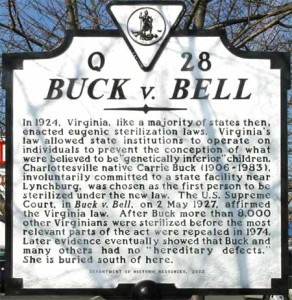Did our message finally get through? (See “How ADA-for-the-Web Regulations Menace Online Freedom,” 2013). Or that of other commentators like Eric Goldman, who warned (of a related court case) that “all hell will break loose” if the law defines websites as public accommodations and makes them adopt “accessibility”? At any rate, the U.S. Department of Justice, after years of declaring that it was getting ready any day now to label your website and most others you encounter every day as out of compliance with the ADA, has suddenly turned around and done this:
In an astonishing move, the Department of Justice (DOJ) announced that it will not issue any regulations for public accommodations websites until fiscal year 2018 — eight years after it started the rulemaking process with an Advanced Notice of Proposed Rulemaking (ANPRM).
Yes, eight years is a very long time for a rulemaking, especially one pursuing issues that have been in play for many years (that link discusses testimony I gave in 2000). And predictably, some disabled interest-group advocates are already charging that the latest delay is “outrageous” and shows “indifference.” More likely, it shows that even an administration that has launched many audacious and super-costly initiatives in regulation has figured out that this one is so audacious and super-costly that it should be – well, not dropped, but left as a problem for a successor administration.
Besides, as so often happens, for regulated parties the issue is (to borrow a phrase) not freedom from obligation, but freedom from specification as to what that obligation might be. Court decisions, which for years ran mostly against ADA advocates’ “public accommodations” claim, now point confusingly in both directions. And in the mean time both private litigants and DoJ itself continue to sue online providers and fasten on them new settlements and decrees, as when Amazon lately agreed to caption more videos for the deaf; Harvard and MIT, meanwhile, were still being sued for the audacity of having offered uncaptioned online courses to the public. Minh Vu and Kristina Launey of Seyfarth Shaw:
…since issuing that [2010] ANPRM, DOJ’s enforcement attorneys have investigated numerous [entities claimed to be] public accommodations, pressuring them to make their websites accessible. DOJ even intervened in recent lawsuits (e.g., here, here, and here) taking the position that the obligation to have an accessible website has existed all this time in the absence of any new regulations.
The next administration – or better yet Congress – should summon the courage to give a firm and final No.
[cross-posted from Cato at Liberty]
Filed under: Department of Justice, web accessibility

